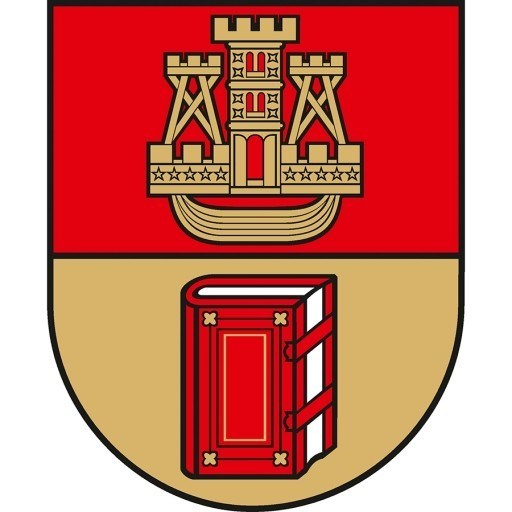Photos of university / #klaipedauniversity
Description
The main aim is to prepare higher qualification Electrical Engineering specialists that meet the requirements of the modern knowledge-based and information-based economy and to ensure the following main qualities of the curriculum: to ensure enough knowledge and abilities that are needed for engineering action of global
market using of most updated technology; to have a concern in a knowledge of technological science applying it in a new or unfamiliar environment in wider (or multi-subject) contexts.
Knowledge: Mathematical knowledge the methods of calculation, mathematical concepts, principles; differential and integral calculation, differential equations, linear algebra, numerical analysis, probability theory, statistics. Specialty knowledge gained in engineering materials, components and their characteristics, knowledge of design and construction, manufacturing methods and techniques. Humanities and social sciences knowledge obtained for engineering professions to achieve objectives, a broader philosophical outlook.
Main cognitive abilities: Ability to apply knowledge to address the qualitative and quantitative nature of known and unknown challenges, often with only limited and (or) there is conflicting information. Ability gained to understand theoretically new technologies. Laboratory practice, to combine theory and practice elements, ability to perform engineering activities required for experimental work. Comprehension obtained of new electronic and electrical engineering research and development problems.
Main practical abilities: Skills to monitor, measure the quantitative and qualitative physical or other properties, events or developments. Abilities gained for practical research, experiment planning, design and execution of skills; the ability to choose appropriate methods and techniques and to make reliable measurements. Skills to work with test and measurement equipment and ability to use standard research
methods. Ability to design systems, processes and their elements.
Transferred skills: Written and verbal communication skills; ability to clearly and correctly give experimental results and conclusions to various listeners. Ability to access legal and regulatory documents. Logical thinking, algorithm design, problem solving skills relating to qualitative and quantitative information evaluation. Mathematical and computing skills, including such aspects as assessing the accuracy of the calculation, correct measurement unit and data applications. Information search and information technology skills.
Professional status: work in a wide variety of Lithuanian and foreign companies as engineers, electrical engineers, managers, executive directors, electromechanical engineers, operators, electronic engineers, project managers, etc.
Access to further studies
Studies can be continued in the graduate study programmes of technological or social science graduate (master) degree programs.
Detailed Course Facts
Application deadline July 1; Non EU; March 1 Tuition fee Not specified Start date September 2015 Credits (ECTS) 240 ECTS
Duration full-time 48 months Languages Take an IELTS test
- English
Delivery mode On Campus Educational variant Full-time
Course Content
Format: the program consists of four academic years eight semesters. The amount of 30 ECTS of studies modules is included in each semester.
Examination and assessment regulations
The main form of evaluation is an examination. Every course unit is concluded with either a written or written-oral examination or pass/fail evaluation. Students knowledge and general performance during the exam are evaluated using grading scale from 1 (very poor) to 10 (excellent) or by pass or fail evaluation in the cases when pass/fail evaluation is foreseen as a final evaluation of the course unit. Academic staff indicates different methods of work in their modules: case study, project writing, analysis of scientific literature, independent study assignments, assessment of their own achievements, participation in lectures, report presentation, question and answer method, visits to institutions, comparative analysis, etc.
Final examination
The Bachelors final theses for bachelor degree.
Requirements
Entrants must have completed secondary education or equivalent education.
There is no entrance exam.
Work Experience
No work experience is required.
Related Scholarships*
- Academic Excellence Scholarship
"The Academic Excellence Scholarship can provide up to a 50 % reduction in tuition per semester. These scholarships will be renewed if the student maintains superior academic performance during each semester of their 3-year Bachelor programme. The scholarship will be directly applied to the student’s tuition fees."
- Alumni Study Travel Fund
Scholarships for students who are already attending the University of Reading.
- Amsterdam Merit Scholarships
The University of Amsterdam aims to attract the world’s brightest students to its international classrooms. Outstanding students from outside the European Economic Area can apply for an Amsterdam Merit Scholarship.
* The scholarships shown on this page are suggestions first and foremost. They could be offered by other organisations than Klaipeda University.








